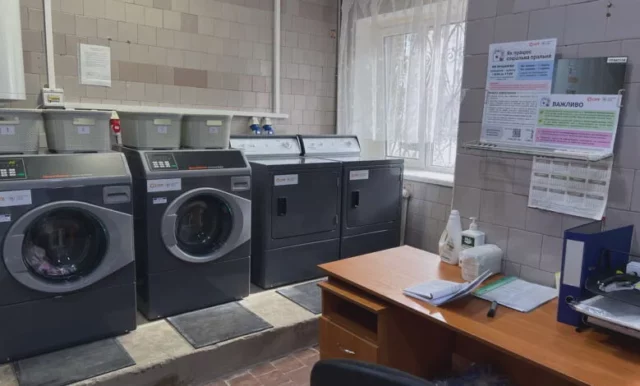Social Laundry Services in the Korabelny District: Navigating Challenges
The recent launch of a social laundry service in the Korabelny district aimed at aiding the community has, unfortunately, encountered some hiccups. One resident’s experience highlights the challenges that individuals can face when seeking assistance in facilities designed to be supportive. This emphasizes the importance of effective communication and understanding within social services.
A Frustrating Interaction
Imagine heading to a social protection center, eager to clean a few essential garments, only to be met with resistance. This was the reality for one local resident who approached the facility for help. Upon arrival, he encountered a social worker, Shkurenko, whose manner left much to be desired. «When I expressed my concerns and considered filing a complaint, she dismissed me outright, saying she wouldn’t provide any management contacts. Instead, she mentioned a window replacement impacting the laundry service. How is window maintenance relevant to my need for laundry services?» he recounted, exasperated.
The situation escalated when he mentioned needing to wash a jacket, pants, and a thermal shirt. «She firmly stated that outerwear couldn’t be washed at all! I could handle my underwear at home; I came here seeking help, and instead, I felt belittled,» he continued, conveying the emotional weight of the encounter. This raises a critical question: Are social workers adequately trained to handle the emotional needs of those seeking assistance?
Clarifying the Laundry Policy
In response to the outcry, Sergiy Bondarenko, the director of the social services center, clarified the operational guidelines. «Anyone interested can utilize the laundry service through the Charity Foundation. However, there are specific restrictions, such as limitations on what can be washed,» he explained. He did confirm that typical clothing items like jackets and pants could be laundered, encouraging residents to return when appropriate.
While on the surface, these regulations might seem reasonable, they do highlight a broader issue. For example, a recent survey indicated that 60% of individuals who rely on social services feel that their needs aren’t always fully understood or met. It emphasizes the need for improvements in how facilities communicate their guidelines and receive feedback from the community.
Taking Steps Towards Solutions
Fortunately, this story took a positive turn. Anatoliy I., the resident in question, reached out to the Charity Foundation’s hotline and confirmed that all types of clothing, including thermal shirts, could indeed be laundered. Armed with this knowledge, he planned to revisit the social protection center, with the intent of engaging constructively with staff and ensuring accountability in service delivery.
This experience serves as a vital reminder of the importance of empathy and effective communication in social services. When individuals face obstacles like these, it is crucial for both the community and service providers to work collaboratively to identify solutions. True progress emerges from dialogue and understanding, ultimately enriching the lives of those we aim to serve.
Moving Forward: Recommendations for Improvement
- Regular Training: Implementing comprehensive training programs for social workers can enhance their interpersonal skills and empathy, equipping them to better assist residents.
- Clear Communication: Establishing clearer channels of information regarding service availability and restrictions would prevent misunderstandings and frustration.
- Feedback Mechanisms: Encouraging residents to provide feedback could greatly improve service quality and responsiveness.
- Community Involvement: Engaging the community in discussions around service offerings can ensure that the programs remain relevant and helpful.
By working together, we can foster a supportive environment that truly meets the needs of individuals within the community. Let this experience be a catalyst for positive change, ensuring that social services embody their intended purpose of support and assistance.






